home I index I latest I glossary I introductions I e-mail I about this site
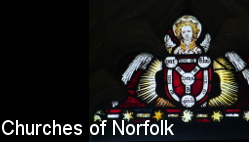
Christ
Church, New Catton, Norwich
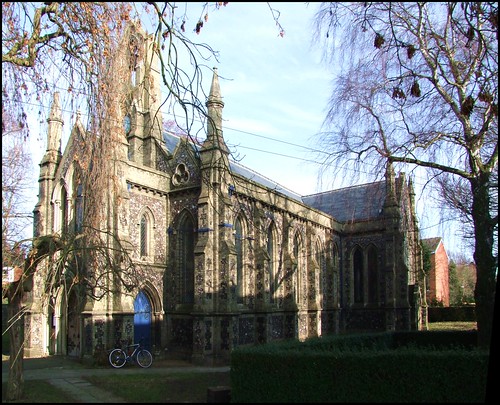
Read
the captions by hovering over the images, and click on them to
see them enlarged.
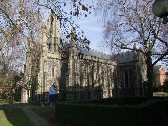
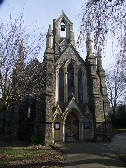
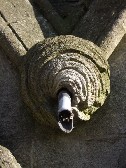
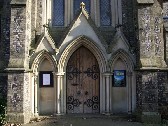
| |
|
Christ
Church, New Catton, Norwich
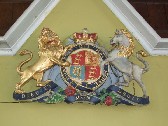 |
|
Christ
Church is a grand and rather surprising church in
the working class Victorian and Edwardian suburbs
to the north of Norwich city centre. It predates
the housing around it. The west frontage is
pre-ecclesiological, but intricate, as if rather
more than just the enthusiasm of some 1830s local
Gothick carpenter. In fact, it is the 1842 work
of John Brown, who in the 1830s and 1840s was
designing high quality Commissioners churches for
the Diocese, and thus was one of the first
Victorian churches in Norfolk. Here is a
mature architect working without the constraints
of the pattern books of the Camden Society and
the imperatives of the Oxford Movement. Christ
Church was his first project after Hainford All
Saints, a few miles off. The design is very
similar, except that here gault brick was used
instead of red brick and flint. Early English the
style might be, but those spirelets lift the eye
to heaven as surely as any Perpendicular
architecture.
|
|
|
|
| |
|
This is a
church which appears larger inside than it does outside.
You step through the west porch into a pleasingly light
interior which is a lovely example of the decade. Pevsner
describes a poor timber roof, but this is most
unfair: Brown created an elaborate, airy roof structure
which has in recent years been returned to what were
probably its original colours. A south transept with a
delicious late Arts and Crafts window forms the parish
war memorial, with a staggering number of names. This has
become an area for quiet prayer in a church which is open
every day, a valuable resource in an inner-city suburb -
other churches might well follow the example.
| Old
photographs of the interior show an altar hard
against the east wall, hemmed in by altar rails,
with choir stalls cluttering the chancel aisles.
But these are gone today: the altar stands west
of the last bays of the arcades, and looks as if
it was always intended to be there. Thus,
liturgical reforms have brought about a harmony
not intended by the architect. Curiously, the
older photographs also show that, since the
1960s, the original benches have been replaced by
the current range, painted the same soft green as
the roof and walls.It would be interesting to
know where they came from. Christ
Church was built at a time when Norwich was just
beginning to stretch its wings as an industrial
city. Overlooking all from the west are the
Victorian royal arms, installed for a young
monarch in her early twenties, at an optimistic
moment when anything must have seemed possible.
|
|
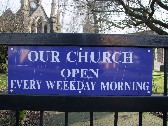 |
|
|
|
Simon
Knott, February 2009
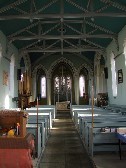
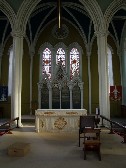
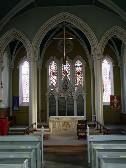
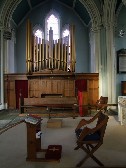
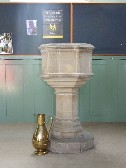
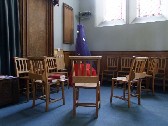
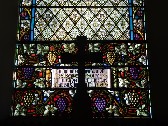
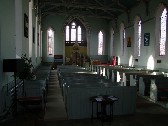
Amazon
commission helps cover the running costs of this site.
home I index I latest I introductions I e-mail I about
this site I glossary
Norwich I ruined churches I desktop backgrounds I round tower churches
links I small
print I www.simonknott.co.uk I www.suffolkchurches.co.uk





